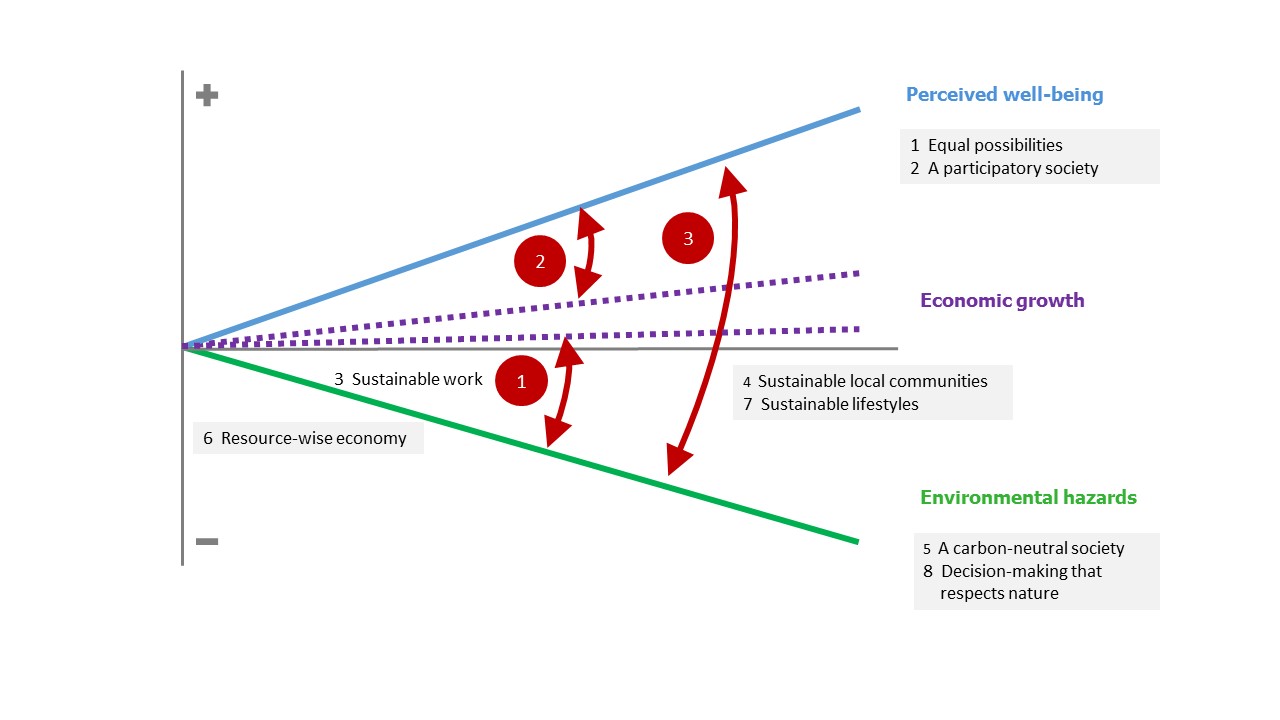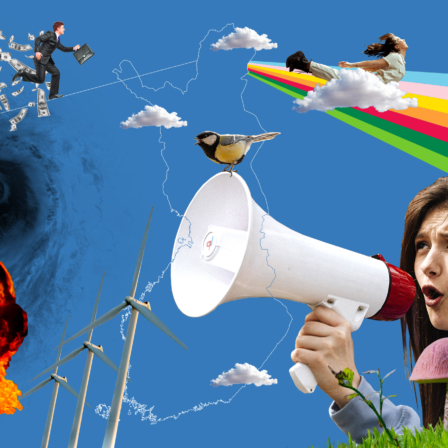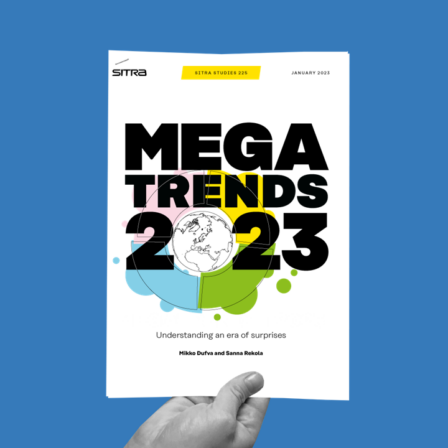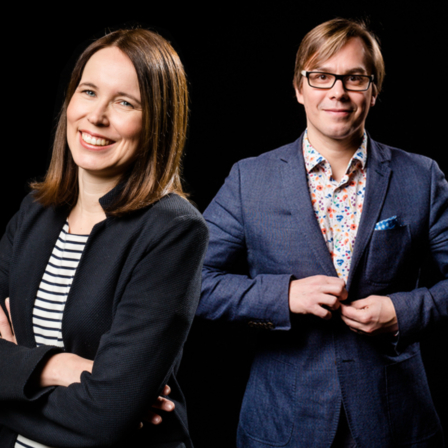On Wednesday 20 April, I attended a meeting of the Finnish National Commission on Sustainable Development and spoke on behalf of the expert panel. During my talk, I brought up the decoupling challenges associated with sustainability. Decoupling and its related challenges are actively discussed and debated in research literature. This helps us to understand what a fascinating and challenging concept the commission is working with and provides a context for the objectives of Society’s Commitment to Sustainable Development.
Economic growth in recent decades has been accompanied by an increase in environmental impacts. On the other hand, economic growth has also improved well-being. Economic growth, well-being and environmental impacts have been continuously rising. However, these links require a new approach, and that’s why we need three types of decoupling.
Challenge #1: Economic growth has to be decoupled from the increase in environmental impacts
First of all, economic growth should be decoupled from the increase in harmful environmental impacts. Many studies conducted on the possibilities for achieving success in this matter find that there is no simple answer to this question. For example, the International Energy Agency (IEA) announced in March that emissions caused by global energy production have remained at the same level for the second consecutive year despite growth in the global economy. Growth in renewable forms of energy is an encouraging development. However, since this announcement many researchers have published critical opinions that question decoupling, because it only applies to emissions from energy production while, for example, consumption-based emissions continue to increase. Rather than arguing this further, we should focus on what we all agree on: greenhouse gas emissions must be brought close to zero by 2050.
Challenge #2: Safeguarding well-being has to be separated from economic growth
The second decoupling challenge involves separating the enhancement of well-being from economic growth. Over the past few decades, economic growth has increased well-being and, generally speaking, people in wealthy countries are more satisfied with their lives. However, the manner in which wealth is distributed has a great impact. This is why it is so important that the goal of reducing inequality has been strongly highlighted during the updating process of Society’s Commitment.
Ensuring that economic growth and well-being can be decoupled is a very relevant challenge today, when economic growth has declined and not even economists are prepared to forecast strong growth in the near future. Along with reducing environmental impacts, adhering to the target of safeguarding well-being is subject to another condition that cannot be compromised: We urgently need to find answers to the question of how society can produce and share well-being in a manner that is independent of economic growth.
Challenge #3: Pursuit of well-being has to be decoupled from an increase in environmental impacts
The third decoupling challenge is linked to well-being and environmental impacts. Today, the pursuit of well-being, or the ways in which people live, work and travel, often causes an increase in adverse environmental impacts. The priority in seeking efficiency should now be given to the eco-efficiency of well-being, i.e. maintaining a high level of well-being by means of the lowest possible material investment.
The key factor in terms of a sustainable future is to decouple the pursuit of well-being from an ecological crisis. This type of decoupling may not necessarily require economic growth.
Aiming for a sustainable economy
Everything indicates that the significance and role of economic growth when pursuing decoupling is uncertain and even contradictory to a certain extent. When striving for sustainable development, this uncertainty should not be allowed to confuse decision-making or hinder activities. It is safe to pursue a sustainable economy that focuses on producing well-being within the limits of nature’s carrying capacity, something that was already acknowledged in the update of Society’s Commitment.
The eight objectives of Society’s Commitment should be seen as part of the overall objectives for decoupling, in which development costs affect one another. Identifying the challenges highlights the fact that the commitments can also have interesting interactions with each other, and that sustainable development cannot focus only on issues such as opportunities to influence growth or reducing emissions. Successful decoupling plays a critical role in terms of striving for a globally responsible and prosperous Finland that respect the carrying capacity of nature.
Nudge in the right direction
Society’s Commitment emphasises the importance of having opportunities to make sustainable choices. The current unsustainable structures will only be dismantled if individuals, companies and municipalities can make sustainable choices. This is why we need a variety of incentives, ranging from economic steering to infrastructure changes or a more subtle channelling of consumption choices. Providing more opportunities to make sustainable choices is an important approach that could be more visible in all promotion of sustainable development.
Society’s Commitment and Agenda 2030 provide clear guidelines and objectives for the work and decision-making of the Finnish National Commission on Sustainable Development. They form a sustainable development framework that brings together different targets, and a means for evaluating all central government decision-making and, for example, government proposals and budget proposals in the future. They also serve as a strong foundation for the commission to promote sustainable development and provide a commitment that citizens can refer to when calling for radical reforms.

















Recommended